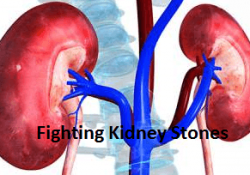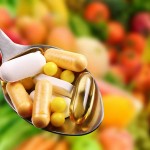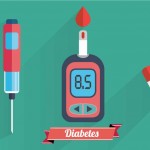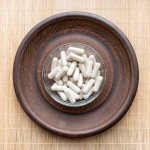
Fighting Kidney Stones
15-12-2015 | Posted By: Admin | 1639 View(s)
Kidney stones are solids that form in the kidneys when substances like calcium, oxalate and phosphorus, normally are excreted through urine, become concentrated. A kidney stone may settle down in the kidneys or travel right through the urinary tract. The symptoms vary depending on their size.
A smaller crystal may comfortably travel down the urinary tract and get expelled on its own without causing any pain or discomfort. Passing a bigger kidney stone can be a very painful experience and, depending on size and location, you may need anything from pain medication to surgery. Surgery is usually done if stones become lodged in the urinary tract or cause complications.
There are several factors that predispose an individual to kidney stones. The most common include a family history of kidney stones, repeated urinary tract infections or a blocked urinary tract. Insufficient intake of water and certain medications can also cause kidney stones. If you’ve had kidney stones in the past, these guidelines will also help you reduce the risk of recurrence.
Lifestyle changes
There are different types of kidney stones: calcium oxalate, calcium phosphate, uric acid, cystine and struvite. Calcium oxalate stones are the most common. Each type requires different nutrition and lifestyle change advice. So it’s best first to get the stones analysed.
If you’re looking at prevention, one sure-shot way to reduce the risk is to drink water throughout the day.
Aim for at least two and a half to three litres of fluid each day. People with cystine stones may want to aim at drinking, even more, water.
If you are not used to drinking this much fluid, start by adding one extra glass each day and slowly increase the number of glasses you have.
Sugary drinks, like aerated drinks and coffee and tea, are not good choices for increasing the amount of fluid you drink. They may increase your risk of kidney stones.
One practical way of finding out if you are drinking enough water is to check the colour of your urine. If it is deep yellow, you need to up the water intake.
Don’t hold your urine for long, and don’t underestimate the loss of fluids through sweat. The more you sweat, the less you urinate, and that can cause minerals to settle in the urinary passage and cause stones.
Choose a diet low in salt
Sodium, often from salt, causes the kidneys to excrete more calcium into the urine. High concentrations of calcium in the urine combine with oxalate and phosphorus to form stones. So a low-salt diet is better.Limit the consumption of packaged foods, ready-to-eat foods, fast foods and Chinese meals which are often high in sodium. Reduce salt in cooking by adding fresh herbs, spices, seasoning, lemon juice, garlic, ginger or pepper, and avoid using table salt.
Reduce animal protein
Animal protein contains the chemical compound purine, which breaks down into uric acid in urine. Foods especially rich in purines include organ meats, such as liver and brain. Animal protein may also raise the risk of calcium stones by increasing the excretion of calcium and reducing the excretion of citrate in the urine.
If you have the commonest, calcium oxalate stone, you don’t need to restrict the calcium in your food. Continue eating calcium-rich food, but take calcium supplements only if prescribed by a doctor. Eat less oxalate-rich foods such as beets, broccoli, okra, spinach, sweet potatoes, nuts, black tea, tomatoes, chocolate, soy products, wheat bran and buckwheat.
If you want to take a vitamin C supplement, make sure you take less than 1,000mg per day. A high amount of vitamin C can, in fact, increase your risk of stones.
If you have a uric acid stone, avoid red meat, organ meats and shellfish, which have high concentrations of purines. High purine intake leads to a higher production of uric acid, and the kidneys have to work harder to excrete it. Higher uric acid excretion leads to lower urine pH, which means the urine is more acidic—a friendlier environment for uric acid stones.
Apart from limiting the foods mentioned above, also restrict sugar-sweetened foods and drinks, especially those that contain high fructose corn syrup. Consume alcohol in moderation because it can increase uric acid levels in the blood. Eating less animal-based protein and more fruits and vegetables will help decrease urine acidity. This will, in turn, help reduce stone formation.
Vishakha Shivdasani is a Mumbai-based medical doctor with a fellowship in nutrition. She specialises in controlling diabetes, cholesterol and obesity.
Source-livemint.com,15.12.2015-http://www.livemint.com/Leisure/4UIhbELv8LaxeZj6wexNxL/Fighting-kidney-stones.html









